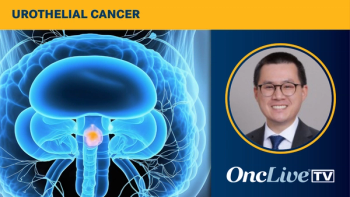
Genomically Guided Radiation Dosing in Oncology: Ready for Prime Time?

Dr. Scott and Dr. Torres-Roca discuss their research of a pooled retrospective analysis exploring genomic-adjusted radiation dose–based radiation therapy in solid tumors and what using genomics to guide radiation dosing decisions could mean for oncology practices.
Welcome to OncLive On Air®! I’m your host today, Gina Mauro.
OncLive On Air® is a podcast from OncLive®, which provides oncology professionals with the resources and information they need to provide the best patient care. In both digital and print formats, OncLive® covers every angle of oncology practice, from new technology to treatment advances to important regulatory decisions.
Genomic-adjusted radiation dose (GARD) demonstrated a significant association with time to first recurrence and overall survival (OS) in patients with certain solid tumors who had been treated with radiation therapy, indicating that genomics should be used to guide radiation dosing decisions.
Today, we had the pleasure of speaking with Jacob Scott, MD, DPhil, associate professor at Case Western Reserve University School of Medicine and radiation oncologist at Cleveland Clinic, and also Javier Torres-Roca, MD, a senior member in the Department of Radiation Oncology at Moffitt Cancer Center and professor of oncologic sciences at the University of South Florida Morsani College of Medicine. The two experts discussed a recent paper they were authored on that was published in the Lancet Oncology.
The pooled retrospective analysis utilized data from 11 published clinical cohorts of 1615 patients spanning 7 types of solid tumors, including breast cancer, head and neck cancer, non–small cell lung cancer, pancreatic cancer, endometrial cancer, melanoma, and glioma.
A total of 1298 patients––982 who had received radiotherapy and 316 who had not received radiotherapy––were evaluated for time to first recurrence, and 677 patients––424 who had received radiotherapy and 253 who had not received radiotherapy––were evaluated for overall survival.
Findings from the interaction test showed that the effect of GARD on OS is dependent on the receipt of radiotherapy (Wald statistic, P = .011). The interaction test for GARD and radiotherapy was not significant for time to first recurrence (Wald statistic, P = .22).
The results showed that the hazard ratios (HRs) for GARD as a continuous variable were 0.98 for time to first recurrence (95% CI, 0.97-0.99; P = .0017) and 0.97 for OS (95% CI, 0.95-0.99; P = .0007).
In our exclusive interview, Drs Scott and Torres-Roca discussed their research of the pooled analysis and what it means if using genomics to guide radiation dosing decisions in oncology.




































